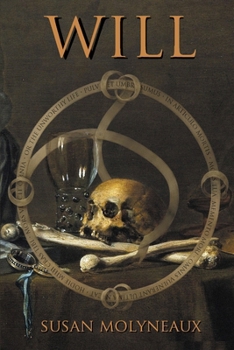Will, or The Unworthy Life
Will, or The Unworthy Life
Cora Wilson wakes each morning and counts seven stripes of light across her ceiling. She takes seven pills. She measures her coffee to exact proportions.
Since her cancer diagnosis and subsequent remission, precision has become both discipline and comfort.
But recently, Cora has developed a certainty-not anxiety, not premonition, but knowledge as solid as the stone she feels lodged behind her sternum: someone will kill her.
Rather than resist this certainty, Cora prepares for it. She organizes her financial records, updates her will, visits the police (who can do nothing without evidence of an actual threat), and methodically arranges for her absence. She observes her colleagues' five-year plans and retirement accounts with anthropological distance, watching people invest in futures she knows she won't share.
Then she sees him: a man whose careful appearances in grocery stores and parks confirm what she already knows. Their encounters are wordless, choreographed, inevitable. As autumn deepens and their paths converge toward a final meeting, Cora continues her preparations-not from fear, but from a desire for dignity, for completion, for the proper arrangement of what will be left behind.
Written entirely in future tense, Will, or The Unworthy Life, is a meditation on mortality, ritual, and the strange territory between presence and absence. It asks: What does it mean to live when you're certain of your ending? And what happens when even death finds you've already become too insubstantial to claim?
For readers of Jenny Offill, Ben Lerner, and Rachel Cusk.





